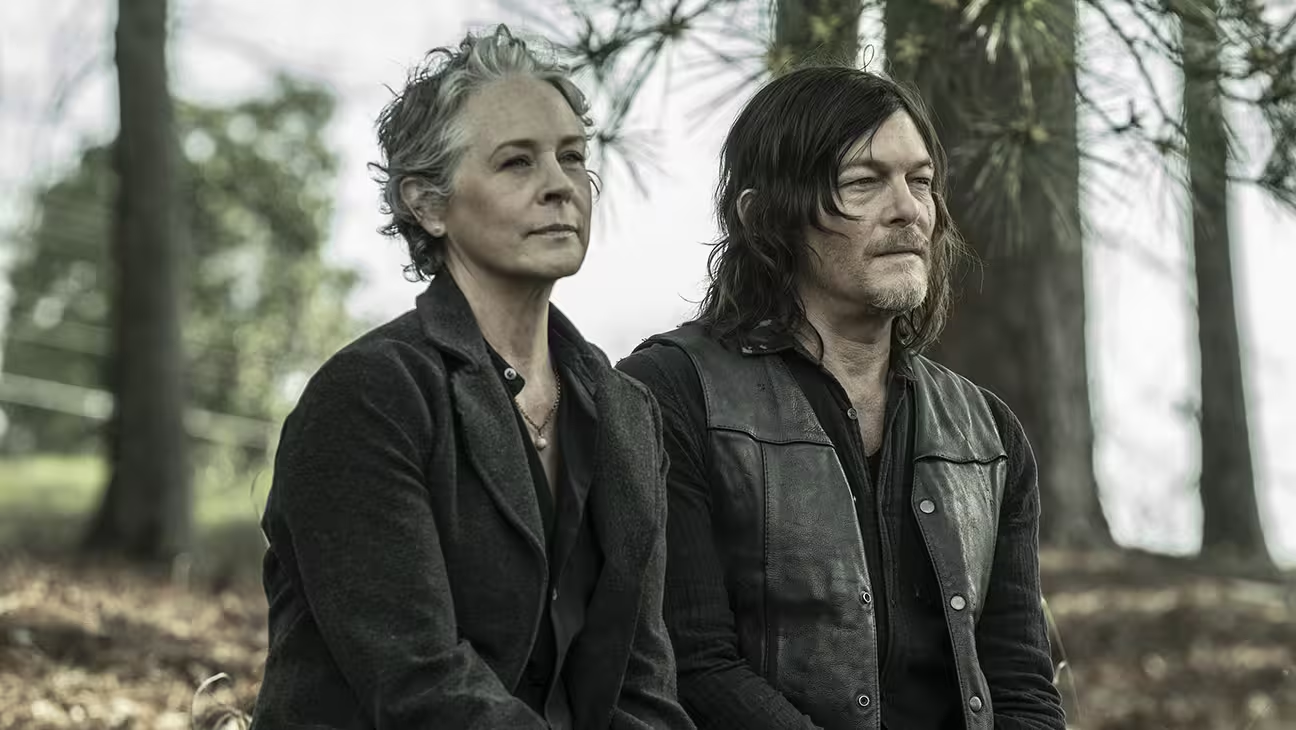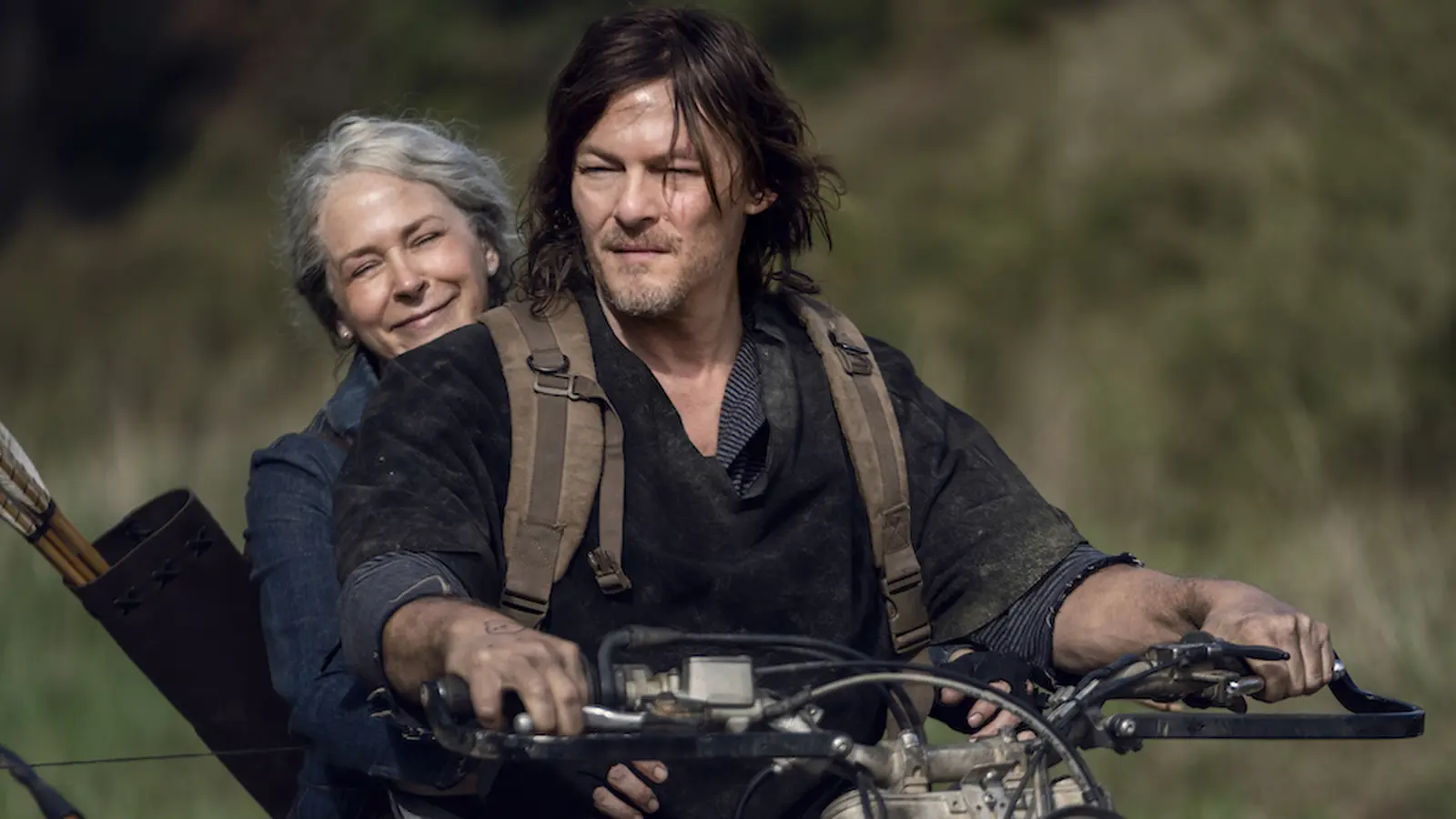5 Minutes
From Rage to Resilience — Revisiting 15 Years of Daryl and Carol
At MIPCOM in Cannes, as costumed Walkers limped through the Palais des Festivals, Norman Reedus and Melissa McBride took a moment to reflect on an arc that has become central to modern television drama. The pair, joined by franchise steward Scott Gimple and AMC Studios chief Dan McDermott, mapped how two characters who began as supporting survivors transformed into emblematic figures for the entire Walking Dead universe.
Reedus—long synonymous with Daryl Dixon—said the character's growth was forged in tragedy. The death of Daryl's brother created a pivot point: where once he might have followed a familiar, dark path, that loss became the impetus for reinvention. Reedus credits candid conversations with writers and Gimple for allowing him to take Daryl from rage-driven loner to a respected leader and expert tracker, a shift that turned him into a fan favorite across multiple spin-offs.
McBride described Carol's trajectory as equally dramatic. Introduced as an abused wife and mother, the character endures devastating personal loss and emerges as one of the series' toughest moral cores. McBride highlighted the challenge and joy of playing Carol in phases, responding to the changing world of the show and the ethical tests it presents. The friendship between Carol and Daryl, nurtured across eleven seasons of the flagship series and rekindled in the Europe-set Daryl Dixon, proved essential to both characters' emotional development.
Human Drama at the Heart of a Zombie Empire
AMC leaders echoed the actors' focus on character. Kristin Dolan, AMC Networks CEO, summed it up: the secret of The Walking Dead was never the zombies but the humans at its center. Dan McDermott underlined the franchise's cultural reach, reminding the market that the mothership show launched AMC Studios into original drama and spawned multiple spin-offs. The numbers are staggering: with dozens of the highest-rated cable broadcasts and a global fandom to match, the Walking Dead brand remains one of television's most enduring pop-culture sagas.

This human-first approach helps explain why the franchise can extend into new territories—literally. The Daryl Dixon spin-off, set partly in Europe, reframes the post-apocalyptic world and asks how two veterans of survival adapt in unfamiliar landscapes. It also follows a larger industry trend: shows increasingly view spin-offs as opportunities to deepen character studies rather than simply monetize a brand.
Comparatively, the franchise's expansion echoes other TV universes like Star Trek and the Marvel Cinematic Universe, though The Walking Dead stands out for its intimacy. Instead of cosmic stakes or superhero scale, its spin-offs often concentrate on character psychology and moral consequence, which keeps viewers invested episode after episode.
Behind the Scenes and Fan Reaction
Behind the camera, the chemistry between Reedus and McBride and open collaboration with writers created room for evolution. Reedus credits writers for trusting him to find Daryl's voice; McBride relished the complexity of Carol's darker choices. Fans have rewarded that risk-taking: social media campaigns, fan art, and sustained streaming numbers show that audiences care deeply about nuance over spectacle.
Critically, some reviewers have argued the franchise risks franchise fatigue, but its continued commitment to character-driven storytelling mitigates that danger. By focusing on human relationships amid apocalypse, The Walking Dead keeps reinventing itself without losing the emotional core that made it resonate in the first place.
"Few TV worlds balance serialized spectacle and intimate character work as well," notes film historian Anna Kovacs. "Daryl and Carol are proof that long-form television can allow actors and writers time to craft meaningful transformation, far beyond what a two-hour movie could achieve."
Whether viewers are curious about the new European backdrop or drawn back by familiar faces, the conversation at MIPCOM made one thing clear: Daryl and Carol remain central to how we think about survival, loyalty, and reinvention in genre television. Their journeys have become case studies in character evolution, and fans can expect the franchise to continue exploring new continents, tonal shifts, and moral gray zones.
In the end, the Walkers may shuffle on-screen, but the core drama continues to be about people — flawed, stubborn, and profoundly human. That is likely why, even 15 years on, audiences still tune in to see where Daryl and Carol will go next.
Source: deadline



Leave a Comment